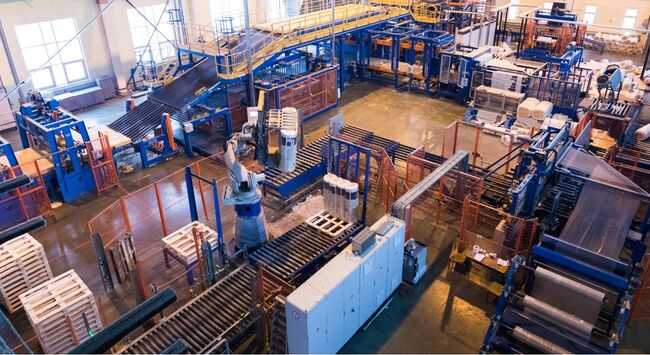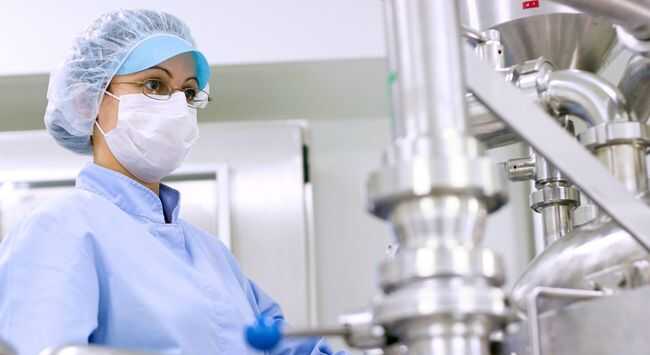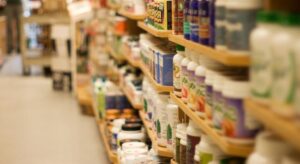
Allergen Control in the Food Industry: Safe Food Manufacturing Practices

With the increasing demand for safe and allergen-free food products, companies need to ensure that their manufacturing processes are in line with industry standards. Allergen control in the food industry is a top priority as it ensures safety of consumers from any potential allergen risks present within certain ingredients or materials used during production.
Taylor Gleason Enterprises has developed tried-and-true practices for manufacturers looking to provide customers with clean, allergen free products. In this blog post we will discuss an overview of allergen control in the food industry, best practices for safe food manufacturing processes, and benefits associated with working alongside a private label manufacturer such as TGE when it comes to controlling allergens during production.
Allergen Control in the Food Industry: Overview

Here we will discuss what an allergen is, how it can affect people, and what the most common food allergens are.
What is an Allergen?
An allergen is a substance that causes an allergic reaction when ingested or inhaled by someone who has a sensitivity to it. Food allergy reactions vary from person to person but typically involve the body’s immune system responding with inflammation and swelling of the skin or airways. In extreme cases they may lead to difficulty breathing or even death if not treated quickly enough.
Common Food Allergens
The most common food allergens (according to food allergy research) are:
- milk products such as cow’s milk
- eggs
- wheat
- soybeans
- peanuts
- tree nuts like almonds or walnuts
- fish and shellfish such as shrimp or crabmeat
- sesame seeds
- mustard seed oil
- lupin flour which is derived from legumes like peas and lentils
- kiwi fruit juice concentrate used in many processed foods like jams and jellies
- celery seed extract used in soups sauces dressings etc.
- sunflower seed oil used widely in margarines spreads etc.
- buckwheat flour commonly found in pancakes muffins etc.
- cornstarch often added as a thickener for sauces gravies custards etc.
Therefore, it is important for manufacturers, processors, retailers, restaurants, caterers, schools, hospitals, nursing homes, daycare centers etc., to ensure their products do not contain any ingredients that could potentially cause harm. Depending on the severity of the allergy this can range from hives and wheezing to vomiting and abdominal pain or even more serious reactions such as eczema asthma attacks low blood pressure shock seizures coma respiratory failure cardiac arrest brain damage stroke organ failure and death.
Allergen control is an important part of food safety, and understanding the potential risks associated with allergens can help companies ensure their products are safe for consumers. With proper allergen management programs in place, manufacturers can confidently provide quality products to customers while minimizing any potential health risks.
Key Takeaway: Allergen control in the food industry is essential to ensure products are safe for people with allergies. Common allergens include milk, eggs, wheat, soybeans, peanuts, tree nuts, fish, and shellfish. Symptoms of food allergic reactions range from mild to severe and can even be life-threatening if not treated quickly enough.
Safe Food Manufacturing Practices for Allergen Control

At Taylor Gleason Enterprises, we understand the importance of safe food manufacturing practices to ensure that products are free from contamination risk. Allergens can be a major concern for companies looking to hire a private label food manufacturer, so it is important to have an allergen management program in place.
Establishing an Allergen Management Program
The first step in safe food manufacturing is establishing a comprehensive allergen management program that outlines the processes and procedures necessary for controlling potential sources of cross-contamination. This includes segregating raw materials, having the ability to isolate allergen addition points, storage areas, production lines, and equipment dedicated solely to producing allergen-free products. Additionally, personnel should be trained on proper handling techniques and protocols when dealing with allergens.
Cleaning and Sanitizing Procedures
It is essential that a food production environment is properly cleaned and sanitized after each production run to prevent any allergen cross-contamination between different batches or allergen containing products. A thorough cleaning process should include both manual scrubbing as well as chemical treatments such as steam cleaning or pressure washing with approved chemicals designed specifically for food contact surfaces.
Labeling Requirements for Allergens
Labeling requirements vary by country but generally require manufacturers to list any ingredients known or suspected of causing allergies on their product labels in order to inform consumers about potential risks associated with the consumption of the product (especially in the U.S. under the Food Allergen Labeling and Consumer Protection Act). More often than not, food recalls are due to undeclared allergens. Companies must also provide clear instructions regarding how best to store their products so they remain safe from contamination during transport and storage prior to sale at retail outlets or online stores.
Proper allergen control is essential for food manufacturers to ensure the safety of their products. By working with a private label food manufacturer, companies can benefit from dedicated facilities and equipment, quality assurance testing, and expertise in developing healthier options that meet consumer needs.
Key Takeaway: A comprehensive allergen management program is essential for food safety, including proper training and labeling requirements. Key elements include: segregation of raw materials, storage areas, production lines, and equipment; thorough cleaning processes; and clear labeling instructions.
Benefits of Working with a Private Label Food Manufacturer for Allergen Control

When it comes to allergen control, working with a private label food manufacturer can be beneficial. A dedicated facility and equipment for manufacturing products free from contamination is essential when producing food items that must meet strict standards for food allergies.
Private label manufacturers have the necessary resources in place to ensure that their facilities are clean and safe for production. Quality assurance testing is also conducted regularly to make sure that the products being produced comply with regulations and are of the highest quality possible.
Additionally, private label food manufacturers have expertise in developing products that meet consumer needs and preferences for healthier options. They understand what ingredients should be used, how they should be prepared, and how they can best fit into a healthy lifestyle without sacrificing taste or quality. By using this knowledge, companies can create products that appeal to health-conscious consumers while still providing great flavor profiles at an affordable price point.
Finally, private label food manufacturers often offer custom packaging solutions as well as labeling services so companies can easily identify their product on store shelves or online marketplaces. This helps businesses stand out from competitors by creating unique branding opportunities through eye-catching designs or creative messaging on labels or boxes.
Key Takeaway: Private label food manufacturers can provide a safe and allergen-free environment for production, quality assurance testing, healthier ingredient options, and custom packaging solutions.
FAQs in Relation to Allergen Control in Food industry
What is the method for controlling allergens?
A comprehensive allergen control program that includes dedicated production lines and equipment for each product, segregated storage areas, thorough cleaning protocols between runs, detailed ingredient tracking systems and employee training on allergen safety procedures. There should also be a commitment to quality that ensures that your products are safe from cross-contamination and free of allergens.
What are the three most important components for the control of allergen contamination?
- Proper Cleaning and Sanitation: Allergen contamination can be controlled by regularly cleaning and sanitizing all surfaces, equipment, tools, and utensils that come into contact with food products.
- Segregation of Allergens: Separating ingredients containing allergens from other ingredients is essential to prevent cross-contamination during production or packaging processes.
- Documentation: Keeping detailed records of allergen management procedures is critical for ensuring compliance with safety regulations and preventing any potential issues in the future.
What are the components of the allergen control plan?
An food allergen control plan includes:
1) Dedicated equipment and facilities for the production of allergen-free products.
2) A comprehensive cleaning program to ensure that no cross contamination occurs between allergens and non-allergens.
3) Rigorous testing protocols to verify that finished products are free from any trace of allergens.
4) Documentation of every step in the process, including supplier audits, ingredient verification, and product testing results.
5) Training programs for employees on how to properly handle allergens in the facility.
Why is allergen control important?
Allergens can cause serious health issues for those who are sensitive to them, so it’s essential that they be identified and managed properly. The rules and regulations put in place by the Food Safety Modernization Act also make it so that any food manufacturer must comply in order to ensure the safety of end consumers.
At Taylor Gleason Enterprises, we take allergen control seriously by implementing strict protocols such as ingredient testing and verification processes and employee training on allergen awareness. We also ensure that our facility is free from cross-contamination through careful segregation of ingredients, equipment maintenance procedures, and a comprehensive HACCP plan. By taking these steps to ensure proper allergen control in our facility, we provide the highest quality products with peace of mind for both us and our customers.
Conclusion

Allergen control in the food industry is a critical component of safe food manufacturing practices. Working with a private label food manufacturer that has experience in allergen control can help companies ensure their products are free from potential allergens, protecting both consumers and brands alike. Taylor Gleason Enterprises is committed to providing the highest quality services for allergen control, helping companies create safe and healthy products for their customers.
Are you looking for a clean and allergen free facility to manufacture your products? Taylor Gleason Enterprises is the perfect choice. Our tried-and-true manufacturing services will help elevate your brand while meeting the needs of today’s health conscious consumers.
With our advanced protocols, we guarantee that no allergens are present in any of our facilities or products – giving you peace of mind knowing that what you produce is safe and meets industry standards. Let us be your go-to source for food production solutions!




